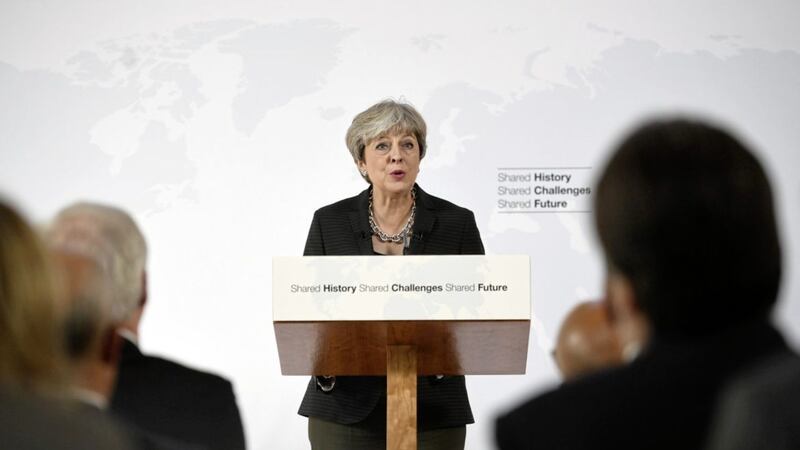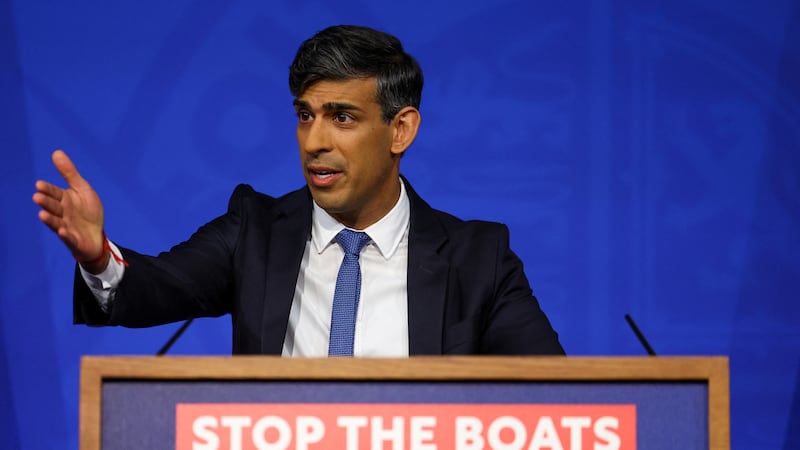THE EU's chief Brexit negotiator has described Theresa May's Florence speech as "constructive" - but Michel Barnier urged the prime minister to turn her rhetoric into a "precise negotiating position".
In an address billed beforehand as 'landmark', the Conservative leader proposed a two-year post-Brexit transition period that would see the UK remain in the customs union and single market until 2021.
She also pledged that other EU member states would not be left out of pocket by Britain's decision to sever ties with Brussels, paving the way for an estimated payment of around £18 billion (around €20bn) into Brussels budgets up to 2020.
But the prime minister put no figure on the amount the UK will pay in its so-called divorce bill and stuck to her position that the final total cannot be agreed until the future trade relationship is settled.
She insisted, however, that estimates of Britain's liabilities, which have ranged from £50-£80 billion, were "exaggerated and unhelpful".
Mrs May called on fellow European leaders to show "creativity and flexibility" in forging a unique partnership, which would include a "comprehensive and ambitious" trade deal and a new treaty guaranteeing future co-operation on security, law enforcement and criminal justice.
In regards to Northern Ireland, she restated her and the EU's desire for no physical infrastructure at the border after Brexit.
Mrs May said there was a recognition that there are "unique issues" to consider in regards to the north.
"The UK government, the Irish government and the EU as a whole have been clear that through the process of our withdrawal we will protect progress made in Northern Ireland over recent years – and the lives and livelihoods that depend on this progress," she said.
"As part of this, we and the EU have committed to protecting the Belfast Agreement and the common travel area and, looking ahead, we have both stated explicitly that we will not accept any physical infrastructure at the border."
Responding to the speech, Mr Barnier stressed that any transition period needed to be subject to existing EU rules, which include free movement of people.
He also said he wanted to discuss the "concrete implications" of Mrs May's promises on money, which he cautioned may not cover all the UK's liabilities.
Irish foreign affairs minister Simon Coveney said the speech was a "positive contribution" but warned that were "still many outstanding issues and a lot of work" before European leaders could begin parallel discussions about the EU’s future relationship with the UK.
"The key thing now is that today’s comments by prime minister May are translated into deliverables across the negotiating table in Brussels," he said.
DUP leader Arlene Foster said Mrs May had outlined a "positive vision".
"A strong signal has been sent in her speech, that although we are leaving the EU we still want to have very positive relationships with our nearest neighbours – this is particularly important to Northern Ireland," she said.
"The reassurances to EU citizens in the United Kingdom will be warmly welcomed, as will the proposed new economic partnership."
Mrs Foster also welcomed the commitment to leave the customs union and single market, while insisting that any transition period should be "for the absolute minimum period".
"The wishes expressed in the referendum should be delivered without undue delay," she said.
But Sinn Féin president Gerry Adams said the speech failed to provide any certainty .
"Mrs May repeated the same platitudes and language on the Good Friday Agreement and the border that she has used for almost a year – there was no hard proposal or detail," he said.
The Louth TD called for the Dublin government to insist on special status for the north which would keep the entire island in the single market and customs union.
Alliance deputy leader Stephen Farry also described the speech as a "missed opportunity".
"There is nothing in this speech to give clarity on the extremely complicated challenges posed by Brexit in Northern Ireland and the potential border issue on this island," he said.
"It is vital the UK government gives much more consideration to this issue over the coming weeks, and in particular, what is being said by local political parties, the Irish government, and voices from business and civil society."








